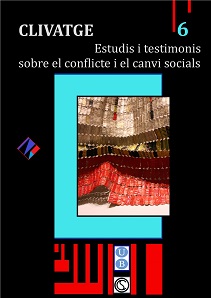A Geography of Power: Transnacional Mining in Peru and Argentina
DOI:
https://doi.org/10.1344/CLIVATGE2018.6.3Keywords:
Peru, Argentina, transnational mining, territory, territorialityAbstract
Peru and Argentina have distinctive geographic and socio-economic characteristics but both contribute to the expansion of neoextractivism in Latin America (that term refers to a business model based on the overexploitation of non-renewable natural resources and heavily dependent on export markets). This geography of neoextractivism, however, needs to be considered in relation to the geography of power. Presently, a number of neoliberal changes made in the legislation in the 1990s in order to facilitate the extraction of metals, and the alliance of multilateral organizations with governments and giant foreign corporations, have empowered the transnational mining industry. These changes have allowed it to impose territory re-functionalization through a system of accumulation by dispossession and to create multinational trade corridors. The industry also controls territoriality and assumes the role of a hegemonic actor able to keep protest against social and environmental degradation in check. Confronted with such a situation, both South American nations are currently witnessing a reprimarization of their economies and thus reproducing past models.
Keywords:
Downloads
Published
How to Cite
Issue
Section
License
AUTHORS RETAIN COPYRIGHT. CREATIVE COMMONS
The authors who publish in this journal agree to the following terms
- The authors retain the copyright and grant the journal the right of first publication of the work, which will be disseminated following the Creative Commons Attribution license.
- Authors are free to establish additional independent contractual agreements for the non-exclusive distribution of the version of the work published in the journal (such as publication in an institutional or thematic repository, their personal website or a book), provided have your initial publication in this journal recognized.
- Texts will be published under a Creative Commons Attribution License that allows others to share the work, provided they include an acknowledgement of the work’s authorship, its initial publication in this journal and the terms of the license.
- Self-archiving of pre-print and post-print versions is allowed.







